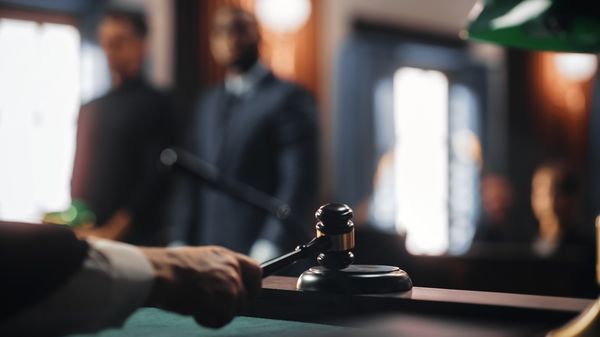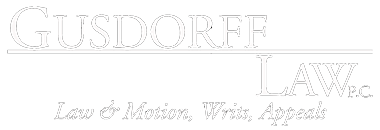- Appellate Litigation
In appellate practice, it is sometimes necessary to petition the court for rehearing. These petitions have limited use and must be carefully employed to achieve their desired purposes. But understanding the bases for a rehearing petition is just the beginning. Your attorney should also be able to navigate the complex rules governing these petitions in state and federal appellate courts. You can count on the appellate advocates of Gusdorff Law.
Reasons to petition (and not petition) for a rehearing
There are limited circumstances in which a party can request a rehearing. Just a few examples include:
- To address legal mistakes contained in the appellate opinion
- The opinion failed to discuss certain facts or misstated the record
- Important arguments or issues were discussed during the appeal but not included in the opinion
- The appellate court lacked authority or jurisdiction
- The appellate decision was based on a legal issue not raised by any party
- A party desires to petition the California Supreme Court and intends to rely on the record
A rehearing is not an opportunity to re-litigate the appeal. Arguments and information already considered by the court cannot be raised in a rehearing. Nor can a rehearing be used to introduce new evidence or issues that should have been raised in the appeal.
California Rules of Court
In California state appeals, Rule 8.268 controls petitions for rehearing. A court may order, on its own or upon a petition, rehearing of a decision that is not final. A party may file and serve a rehearing petition within 15 days after:
- The filing of the appellate decision
- A publication order restarting the finality period, if the party has not already filed a petition for rehearing
- A modification order changing the appellate judgment; or
- The filing of a consent
Separate rules govern each scenario.
A party is not allowed to file an answer to a rehearing petition unless requested by the court. However, in most cases, the court won’t grant a rehearing petition unless an answer from other parties is requested. The petition and any answer must comply with Rule 8.204 concerning length.
If the court does not rule on the petition before the decision becomes final, the petition is deemed denied. If the petition is granted, the initial decision and any opinion are considered vacated.
Federal Ninth Circuit Rules
Rehearing petitions may be directed to a panel of the Ninth Circuit or the entire sitting court (en banc). En banc rehearings are generally not favored, however, and will only be ordered if:
- En banc consideration is necessary to secure or maintain uniformity of the court’s decisions; or
- The proceeding involves a question of significant importance
Moreover, the petition must state one of the following:
- The panel decision conflicts with a decision of the Supreme Court or the court to which it is addressed. Further, the statement must affirm that rehearing is necessary to secure and maintain uniformity of the court’s decisions.
- The proceeding involves one or more questions of exceptional importance. Exceptional importance might include an issue that conflicts with the authoritative decisions of other United States Courts of Appeals.
There is generally a 15-page or 3900-word limit to such petitions. No response may be filed unless the court requests one. But, as with the state rule, a rehearing won’t be granted en banc without response from the other party. Rule 35-3 contains rules for how the en banc court will be constituted.
A petition for a panel rehearing under Rule 40 may be filed within 14 days of the appellate decision. This is extended to 45 days where a U.S. agency or individual sued in an official capacity is involved.
The petition for panel rehearing must state the area of law or fact that the petitioner believes was overlooked. The same rule concerning responses to en banc rehearing petitions applies. If the petition for panel rehearing is granted, the court may:
- Finally dispose of the case without reargument
- Restore the case to the calendar for reargument or resubmission; or
- Issue any other appropriate order
If you believe your California state or federal appellate case is eligible for a rehearing, consult Gusdorff Law. Our comprehensive practice handles all aspects of appellate procedure. Call us today.








